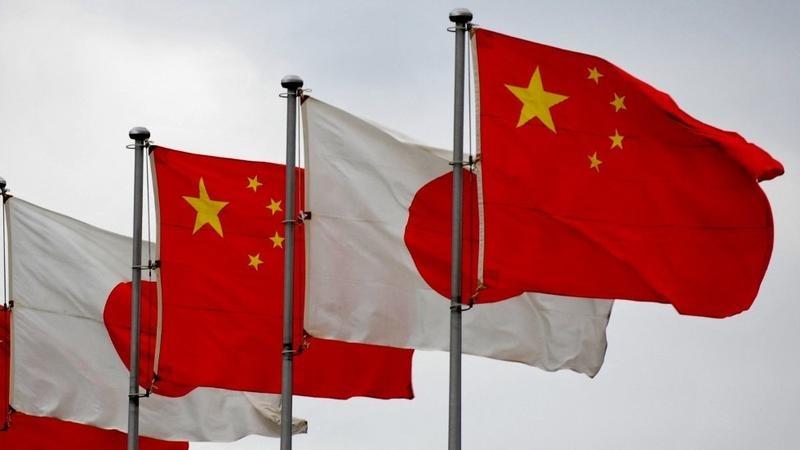
OSAKA, Japan – Chinese-style modernization not only concerns the nation’s own development but also brings new opportunities for global cooperation, Chinese and Japanese politicians and experts said at a seminar in Osaka.
Xue Jian, Chinese consul general in Osaka, emphasized that China’s modernization is deeply interconnected with other countries at the occasion on Wednesday.
He noted that as China continues to develop, its path forward will become broader, creating new opportunities for global development and contributing positively to world peace.
Xue expressed his hope that Japan will join China on the journey toward modernization, encouraging Tokyo to approach Beijing’s progress in the spirit of seeking common ground while respecting differences.
“China hopes Japan will accurately understand the essence of its modernization, actively seize the opportunities it offers, and collaborate with China to inject new impetus into mutual development and the improvement of bilateral relations,” he said.
READ MORE: Sino-Japanese relations focus of cultural festival
Gao Anming, editor-in-chief of the China Foreign Languages Publishing Administration, highlighted the importance of fostering a greater understanding of Chinese-style modernization across various sectors in Japan.
He proposed three key approaches: deepening international research on Chinese-style modernization to promote common global development; taking advantage of China’s comprehensive deepening of reform and opening-up to strengthen mutually beneficial economic and trade cooperation; and expanding collaboration with media, think tanks, and other institutions to enhance understanding and recognition of China.
In August, the Academy of Contemporary China and World Studies conducted an online survey of the Japanese public to understand their views on “Chinese-style modernization.” A total of 1,005 responses were collected.
Among those polled, more than 60 percent agreed that “developing Chinese-style modernization requires inheriting traditional Chinese culture and values, achieving an organic integration of cultural traditions with modern civilization,” said Fan Daqi, vice-president of the academy.
In in a written statement, former Japanese prime minister Yukio Hatoyama said that China’s current situation differs from Japan’s after the collapse of its bubble economy and the former Soviet Union during the Cold War.
He noted that China’s growing national strength will continue to act as a counterbalance to the US, making the conflict between the two countries a prolonged issue.
“I firmly believe that Japan and the United States should avoid falling into the trap of value-based diplomacy and should not abandon their policy of engagement with China. At the same time, Japan should take on a strategic role as a bridge between China and the US,” Hatoyama said.
Hidetoshi Tashiro, chief economist at Japan’s Infinity LLC, emphasized that the digital sector is the driving force behind China’s economy. During his visit to China last November, he observed that no one used cash for payments.
“The rise of this vast digital ecosystem, unlike anything the world has seen before, is now propelling China’s economic growth. This growth is fueled by semiconductor design and the development of applications, areas where China outpaces the United States,” said Tashiro.
China already commands a large share of the global market in many sectors. In industries like electric vehicles and solar panels, as digitalization continues to expand globally, the demand for products and services that enable this transformation will increase, said Tashiro, adding that China’s economy will enter a new phase of growth.
ALSO READ: Chinese path to modernization unique
Yangchoon Kwak, a professor at Rikkyo University’s College of Economics, said the primary driver of China’s future economic growth will be green industries.
He noted that China’s development goals go beyond mere quantitative growth, aiming to foster industries that contribute to global peace and prosperity.
“As a leading country, China can reap even greater benefits by concentrating on green industries, tourism, culture, and arts. By further enhancing these sectors, I believe China is well-positioned to lead the global economy in the 21st century,” said Kwak.
Noting that China is said to be experiencing an economic slowdown, Kwak said there is an opportunity to avoid prolonged stagnation like Japan faced by focusing on emerging industries.
This, he suggested, could allow China to navigate what is perceived as a global recession.
Noriyuki Kawamura, emeritus professor at Nagoya University of Foreign Studies, highlighted two essential factors for China achieving high-quality development.
The first is the pursuit of innovation, particularly through the advancement of cutting-edge technologies. This includes further progress in areas such as artificial intelligence and information technology.
The second crucial factor is the continued expansion of economic and trade openness.
“China has experienced unparalleled economic growth over the past 40 years by adhering to its reform and opening-up policies. To sustain this momentum, it is vital not to relax these policies but rather to continue reinforcing them,” Kawamura said.
Contact the writer at jiangxueqing@chinadaily.com.cn


